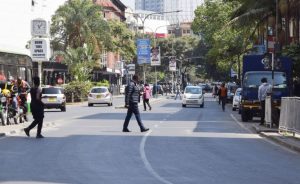Africa: ‘Bombs, Bodies, Broken Promises’ UN Women Chief Demands Action for Conflict-Affected Women

Too often, women are seen as indirect victims. But they are direct targets of bombs and missiles.
Sima Bahous spoke at the UN Headquarters high-level open debate on “Protection of civilians in armed conflict”, where she urged global leaders to put the safety and rights of women and girls at the heart of peacebuilding efforts at a time when the situation of women and girls is rapidly deteriorating across conflict zones.
She said that over 612 million women and girls now live in conflict zones and that “they are not just caught in the crossfire… their bodies, their health, their choices, and their voices are actively targeted,” said Bahous. “That is not just a number; it should be a call to action for all of us,” she said.
In African conflicts, the situation is particularly dire.
Violence, displacement, and systemic gender-based abuse threaten millions of women living in African nations such as Sudan and the Democratic Republic of the Congo (DRC).
She said that women’s bodies are too often used as battlegrounds in conflicts, through sexual violence and a denial of reproductive rights. “Sixty-one percent of all maternal deaths occur in just 35 conflict-affected countries, Bahous said. In the past year, we have seen bombed maternity wards, blockaded medical supplies, and massive funding cuts.”
“When markets, maternity wards, girls’ schools, and homes are hit, women and girls die; it is no accident. These attacks are growing more frequent, and they show exactly how wars are being waged,” she said.
The UN Women chief drew attention to the concept of reproductive violence as a distinct form of harm, citing the deliberate destruction of reproductive health infrastructure in conflict zones.
In Sudan, where maternal healthcare is critically underfunded, women face heightened risks of preventable pregnancy-related deaths. Bahous urged the Council to treat such acts as violations of international law and hold perpetrators accountable, saying that “the destruction of reproductive health infrastructure represents a blatant violation of international law and it is costing women their lives”.
Mental health is not a luxury, it is life-saving.
Bahous said that violence leaves scars not only on the body, but on the mind. Trauma compounds over time, especially when layered with loss, displacement, and constant fear.
Women’s organizations are on the frontlines, she said, documenting abuses and sheltering the displaced despite severe funding shortages. “In Sudan, in DR Congo, and elsewhere, they document abuses and shelter the displaced,” Bahous said, warning that funding cuts could force half of these organizations to close within six months. “90% are already at the breaking point. Continued funding cuts will cost us the very women driving peace and recovery in the world’s most fragile contexts.”
“Despite everything, women resist with courage, with leadership, and with care,” she said.
Bahous called on global leaders to support women’s organizations working on the frontlines of conflict, urging the urgent need for political and financial backing. She urged leaders to act decisively, saying: “Support them, in your collective decisions, in your bilateral funding, and your dialogues with governments closing civic space.”
She appealed to the Council ” to use their influence”.
She said mental health support is not a luxury but a life-saving necessity, without which women cannot recover or lead rebuilding efforts.
Targeted attacks on women in public life through digital violence, such as deepfakes and online harassment, have become a new battleground. “Women who speak out – journalists, activists, politicians – face bullets, bombs, threats, and smear campaigns. Even when not physically attacked, they are driven out by digital violence: deepfakes, harassment, and disinformation.”
She called for recognizing these attacks as civilian protection issues, arguing that women’s participation in peace processes is impossible without safety.
Bahous laid out three urgent appeals to the UN Security Council, stressing that peace and protection for women and girls cannot be separated from justice, funding, and empowerment. She urged the Council to strengthen justice and accountability mechanisms.
“The Council must do more to support justice and accountability for women and girls,” she said, stressing that impunity allows atrocities to continue. While UN Women has long supported investigations, she warned, “documentation alone is not enough.”
She said women’s organizations need increased support in fragile contexts like Sudan and the DR Congo, where UN Women channeled US$110 million in 2024 to support local efforts.
She advocated for women’s empowerment as a protection strategy: “When women lead, they protect not only themselves but their families and their communities and their countries.”
By Melody Chironda



